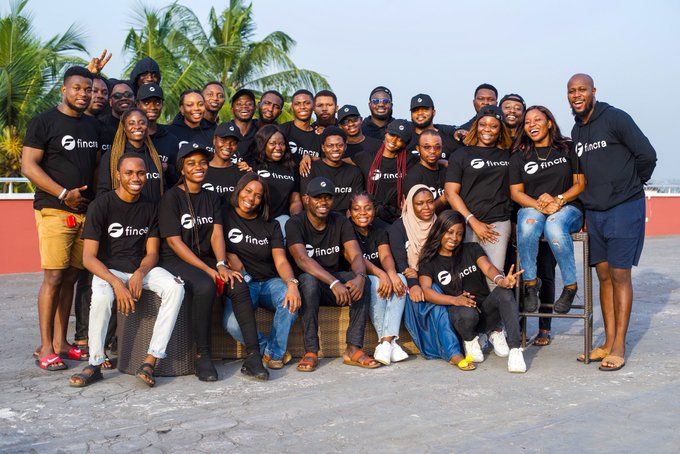Fincra continues efforts to build a global payment Infrastructure with UK expansion
Wole Ayodele, Fincra’s co-founder, and CEO talks about the company's UK expansion and how it will impact Africa.

In October 2022, a global payment infrastructure company, Fincra announced investments in the West Midlands through the Birmingham Tech Week— the most prominent regional tech festival in the United Kingdom (UK), spotlighting innovation and tech success stories from across the West Midlands, as well as opportunities for both domestic and international investors.
“We have been looking at entering the UK, and this investment will make it easier for us to enter that market. They will be able to help us with hiring and setting up offices and connections with trade commissions in the UK and Canada. The primary goal is the market entry of high-growth businesses into the UK,” Wole Ayodele, Fincra’s co-founder, and CEO told Benjamindada.com during a call.
“If we are talking about problems in Africa, we are talking about Africans being able to do business with the rest of the world and vice versa. We have identified the UK as a very strategic hub when it comes to western business in terms of building out infrastructure out of the UK in terms of the amount of business out of the UK that tries to go into Africa.”

A 2021 government-commissioned report also revealed that the West Midlands is home to the UK’s fastest-growing regional tech cluster1 and most significant spread of emerging technologies, with the region’s enterprise support facilities playing a pivotal role in stimulating tech-led innovation. In fact, another Nigerian fintech, Kora expanded into the region in Q2 2022.
“The prospect of a partnership between our talents in the Midlands and Africa excites us. We already have a fantastic team we work with in Africa, and we can’t wait to share and learn from our new team in Birmingham. We have made tremendous progress in tech over the last few years, and seeing that the West Midlands is also on the same path makes this partnership perfect,” Uzoamaka Pauline Okoro, Fincra’s Chief Operating Officer, said. “This expansion will make it easier for African businesses to make transactions within the region.”
Founded in 2021, Fincra is a payments infrastructure for fintechs, platforms, and global businesses. The company provides online and offline payment solutions that allow businesses who have been onboarded to accept payments seamlessly, make local and international payouts/transfers in multiple currencies at a low cost with no hidden fees, and expand their business across borders.
“We saw a problem in the African payment infrastructure and we believe that to enable the continent’s prosperity we need to enable seamless transfer of money and value with the continent and across the world,” Wole added.
“We found out that one of the problems could even be the fact that the foreign compliance team just don't understand Africa or African transactions. There was a time Africans were going on Twitter to complain about their accounts being shut down by foreign banks and financial institutions. A lot of these things happen and the reason why it happens is that some of the infrastructures we actually need to offer global access to Africa have to be built outside of Africa.”
Globally, businesses are constantly confronted with numerous challenges when it comes to being able to make seamless cross-border payments. Some of these challenges include a lack of secure payment infrastructure, country-specific regulations, transactions taking several days to settle, and hidden fees. The existing payment infrastructure cannot help; on average, it takes days for settlements and costs a lot of money for the transaction. This challenge locks out Africans from participating in the global economy.
Amidst these challenges, Africa has managed an intra-trade value of $69 billion as of 2019 [pdf] while contributing just 3% in international trade volume, way lower than other regions. African businesses must expand and diversify their participation in international trade and global value chains to reduce poverty on a large scale and transform their economies. Achieving this is impossible without an easy transfer of value across Africa and the rest of the world.
With Fincra’s payment APIs, developers are able to innovate and enable fintechs to scale to their full potential and provide the best cross-border payment offerings to their customers. These APIs are designed to save cost and help launch financial products quickly, and are ideal for businesses that make frequent payments, require flexibility, and require control.
“To further provide financial access across the continent, we built a white-label agency banking-as-a-service (ABasS) platform that enables businesses to roll out a full robust agency banking structure without a single line of code within one week, it is like a Shopify for agency banking,” Ayodele added. “Everything that we are doing, not just in the UK, but Canada as well and what we also want to do in the EU and other markets that we have identified that we also want to enter is still geared towards the primary goal—which is to build more infrastructure that makes the movement of money and value as easy as sending a text message, especially for African businesses."
Related Article: How API fintech companies are powering Africa's consumer ecosystem
Fincra also powers offline access to financial services with Agency Banking solutions that drive financial inclusion, the company has a suite of products that enables in-person payments on POS machines, and these APIs enable developers to build applications on these machines to create more payment-receiving options for merchants. “POS devices can do much more than accept card payments, the device can accept bank transfers and via apps, that is why we are building these APIs—to drive more innovation,” he said.
The company also offers Banking as a Service with the issuance of Virtual Accounts. Businesses can use Virtual Accounts for quick payment collection from customers in the United Kingdom, Europe, Nigeria, the United States, and other African countries in USD, GBP, EUR, and NGN, and easy settlement into their Fincra wallet with no hidden fees or the headaches of international banking. Fintechs can also integrate Fincra's API to issue bank accounts to their customers for seamless payment collection in the available currency.
In April 2022, Fincra was granted Approval in Principle (AIP) by the Central Bank of Nigeria to operate as a Payment Solution Service Provider (PSSP)—the six-month AIP will be reviewed by the CBN in December 2022 to determine if the company is eligible for a commercial licence. “We take compliance seriously as an organisation, the licence will help us to deepen access to products that we are offering,” Ayodele said.
In addition, the company also received a compliance status on its obligations under the Nigeria Data Protection Regulation (NDPR) for implementing all statutory requirements to protect its customers' privacy rights. In November 2022, Fincra was inducted as a member of the Nigerian-British Chamber of Commerce.






